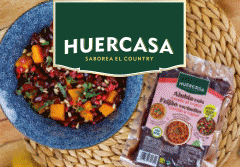The American magnate has prepared a series of tariff measures, the details of which remain unknown, and is finalizing 100 executive orders that will allow him to tax foreign trade without going through the Senate.
For now, the first blow has hit Almeria’s peppers, which can no longer be exported to the United States. The unexpected closure happened without prior notice, according to sources at Coexphal. Between December 1 and the border closure, one million kilograms of this vegetable had been sent to the American market.
Meanwhile, the Eurozone continues to struggle, with its powerhouse, Germany, in recession for the second consecutive year, showing a 0.2% GDP decline in 2024. France is not pulling its weight either, and the United Kingdom is on shaky ground. The situation calls for serious reflection because 84% of Spanish exports depend on these markets.
When geopolitics takes a sudden turn, the interconnected and interdependent nature of the world means the fruits and vegetables sector is always affected. Just think about what happened when Russia closed its doors to European fruits and vegetables. Everything had to be repositioned, from apples to persimmons and stone fruits.
Now, I wonder what might happen to Mexican avocados, which Trump could slap with a 25% tariff. Where will they end up? Uncertainty reigns, and this is the reality we face.



















